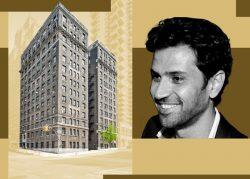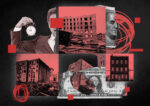The New York market has put another number to rent-stabilized deterioration: 64 percent.
That’s the haircut investment firm BentallGreenOak took on 120 and 125 Riverside Drive when it sold the buildings to New York-based Aya Acquisitions last week. BGO unloaded the properties for $31 million; it had purchased them for $85 million in 2013, PincusCo reported.
Neither firm returned a request for comment.
Rent-stabilized building values have plummeted since the 2019 rent law severely limited rent increases. Some owners have since tried to unwind their holdings, and after interest rates jumped, more became willing to sell at steep discounts.
Still, among recent sales, the price cut at 120 and 125 Riverside Drive is on the steep side.
Properties in Manhattan above 96th Street have experienced the sharpest drops in the rent-stabilized sector, falling 51 percent from peak pricing on average, compared with 18 percent citywide, according to Ariel Property Advisors. The two Riverside Drive buildings that just sold are a little over 10 blocks south of 96th Street.
Although expenses have been growing faster than rent revenue at rent-regulated buildings, and interest rates have risen, many could produce modest profits for years, especially if no major repairs are needed.
But brokers in the space say the firms interested in rent-stabilized assets are betting the rent law will eventually change.
That may be Aya’s calculus. The firm, founded by Amir Shriki, has picked up a handful of rent-regulated assets over the past few years. After its March 2022 acquisition of two partially stabilized Kips Bay walk-ups, Shriki told PincusCo the firm intended to hold the properties for at least 10 years.
Still, the state legislature has shown little inclination to change the 2019 rent law. And landlord groups’ attempt to strike down the law failed last year after the U.S. Supreme Court declined to hear their challenge.
In the aftermath, the Community Housing Improvement Program, one of the groups that brought the suit, said it would put its energy behind a bill that would allow owners to raise rents after renovating vacant units. Tenant advocates scared off some sponsors of the bill soon after it was introduced last year.
Read more



Meanwhile, rent-stabilized distress is growing more dire and lenders are feeling the pain.
New York Community Bank, the top lender to rent-stabilized building owners, set aside $550 million for credit losses in the fourth quarter, citing expected distress in its multifamily portfolio. The company had declined to buy Signature Bank’s rent-stabilized loans after its collapse last March, driving speculation that the debt was toxic.
